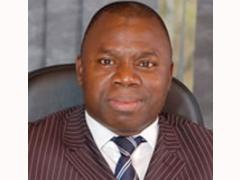Mr. Alhassan Andani, Chief Executive of Stanbic Bank Ghana Ltd., says there are encouraging signs that the economy is improving, and local businesses must take advantage and expand.
He said, for instance, the drop in the 91-day Treasury bill rate by 4 percentage points, from 23 percent since the beginning of the year, is one of the positives.
“This implies that there is hope on the horizon because the cost of borrowing will come down. There is a declining trend because one can see that government is trying to depress borrowing costs.
“Borrowing costs are high because we began the year with the rate of the 91-day Treasury bill at 23 percent; however, in the past three weeks we have seen the rate drop by 4 percentage points.”
Mr. Andani was speaking at a discussion on the present state of the Ghanaian economy and its outlook to clients of Stanbic Bank’s private banking unit, where the bank’s directors and management interacted with the clients, and also introduced them to the pot-pourri of private banking services on offer.
Despite its robust growth, Ghana’s economy has been criticised for the rise in macroeconomic risks due to the depletion of fiscal and external buffers during last year’s elections. The cedi, seen by many as a key gauge of the macro economy’s health, lost 17.5 percent to the dollar in 2012 and remains wobbly this year.
But Mr. Andani has a very different perception of the economy. He is very bullish and looks at the brighter side of an economy that grew by 7.9 percent in 2012 and is forecast to expand by 8 percent this year. Oil revenues also rose 66 percent year-on-year to US$541.8 million in the first half of 2013, driven by an increase in production to 110,000 barrels per day.
The Stanbic MD said local businesses need to be more ambitious and partner with foreign investors, in view of the high level of foreign investor interest in Ghana.
The challenges with the economy have caused woe among some Ghanaians, and clucks of skepticism about the government’s economic management credentials.
But according to Mr. Andani, most of the reports and general assessment of the state of the Ghanaian economy are historical, at best a year old -- which has no bearing on the present situation.
“As a bank, we are in Ghana for the long haul. We are forward-looking and very optimistic about the economy, and that has informed our projections for 2014, 2015, and 2016.
“As a bank, our gauge is that there is strong foreign investor interest in Ghana. They are interested in investing in infrastructure, agro-processing, horticultural exports. They do not just see the Ghanaian market but want to use Ghana as a hub to reach out to a West African market of 240 million people.
“As business people we should get a bit more ambitious and partner these foreign investors, and expand our businesses into other countries.”
Dr. Setor Amedeku of the Bank of Ghana said 2014 will be a good year in terms of the economy’s performance. He said typical of a year after elections and as history has shown, 2013 has been a stabilisation year -- paving the way for a bright 2014. “If you have been analysing the economy over the years, you will know that the 2013 story is not new.”
He added that the severe power-cuts and the election petition at the Supreme Court, coupled with the budget deficit and slowdown in the global economy, impacted negatively on the economy. But with the resolution of most of the challenges, the economy is primed for a much better 2014, he said, adding that there will be less economic volatility next year.
Talking about existing opportunities, he said the current competitive financial sector, with growth in the number of micro-finance institutions and savings and loans companies, attests to the economy’s prospects.
“There are a lot of opportunities in the economy that people can take advantage of,” he stated.
Business News of Friday, 8 November 2013
Source: B&FT
There’re lots of positives - Andani

















